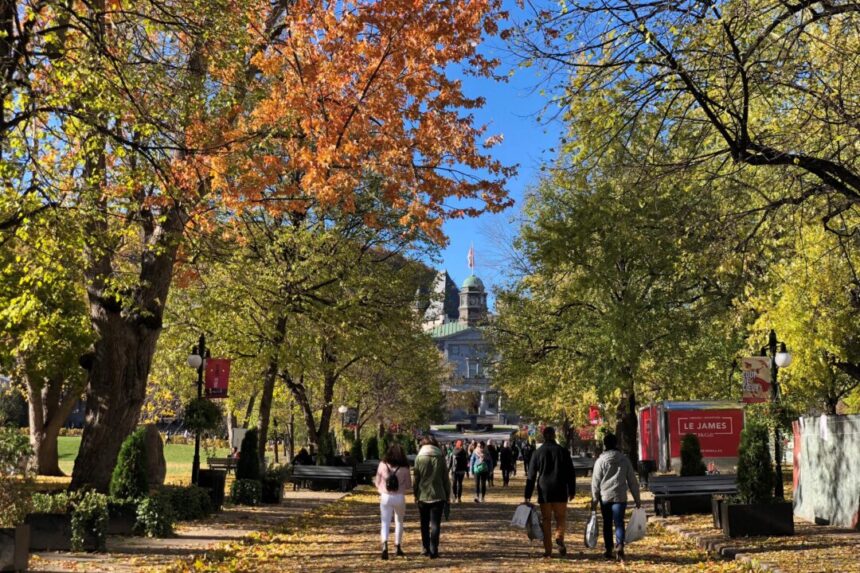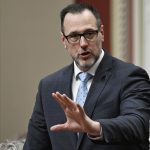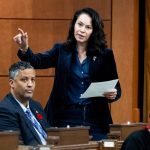Review of ‘Professors Speak Out: The Truth About Campus Investigations,’ by Nicholas Wolfinger.
Commentary
Once upon a time, when I was an undergraduate, academic life was populated by persons, mostly men, who were very smart, slightly eccentric, and would sometimes say abrupt, even rude, things. Some were amazing teachers, some amazing scholars; a few were both and some were neither. During the Cuban missile crisis, my international relations (IR) prof made some critical remarks about “some guy from the English department” holding forth on matters about which, my IR prof said, he was ill-equipped to opine. That would never happen today. Or if it did, the administration would discipline the IR prof for his lack of collegiality. Today, collegiality and “professionalism” have become elements in the unwritten academic code of conduct that enable administrators to punish faculty at will.
Nicholas H. Wolfinger, editor of the new book “Professors Speak Out: The Truth About Campus Investigations,” collected the stories of 21 academics who have been “investigated” by administrators. Those of us still inside the university who recall earlier times are aware of how much has changed in the past couple of generations. People outside the university may be surprised, even shocked, at what goes on now.
According to Wolfinger, there’s “an epidemic of academic investigations” across North American universities where bureaucrats who embody “institutional authority,” which is neither left nor right but simply “institutional,” guided by lawyers, undertake cost-benefit analyses and conclude that their financial and personal interests—that is, a smooth administration with no surprises—conflict with the interests of the faculty.
There are many factors involved, but let’s start with the students, since they are often the source of complaints that result in disciplinary proceedings. Students have always complained, but in the past they complained mostly to one another. Today they can complain to a specialized campus bureaucrat who can initiate an investigation followed by discipline and punishment. Student disagreements over course content, for example, are no longer based on legitimate intellectual differences but on the apparent moral offensiveness and even the “dangerousness” of course content. Students have been taught, for the most part in high school, to “trust their feelings” because life is a struggle between good people and bad people. Accordingly, upset feelings are evidence of contact with bad people.
Students are also no longer pupils to be taught but customers to be satisfied. Professors are no longer mentors or (gasp!) guardians of wisdom, but entertainers who flourish by flattering their customers. In addition, the customer is always right, which is particularly true for the tuition-paying helicopter parents of irate and easily offended students. By compelling little Suzi or little Johnnie to read and study material that makes them “uncomfortable” or challenges their preconceptions, Suzi and Johnnie feel they are being harassed. And of course, poor student performance (in the form of low grades) invites charges of discrimination all by itself.
 Then there’s the astonishing growth in administrative bloat. Sometimes the growth is the anticipated response to government policies that require compliance. Universities must collect information that supports their conforming to various government directives. Mostly, however, university bureaucrats have increased in number to better monitor, guide, and direct their “colleagues” who actually deliver the educational product to the customers. And punish academic misconduct, which they consider themselves uniquely qualified to detect.
Then there’s the astonishing growth in administrative bloat. Sometimes the growth is the anticipated response to government policies that require compliance. Universities must collect information that supports their conforming to various government directives. Mostly, however, university bureaucrats have increased in number to better monitor, guide, and direct their “colleagues” who actually deliver the educational product to the customers. And punish academic misconduct, which they consider themselves uniquely qualified to detect.
To carry out their mission, they’ve developed procedures to investigate complaints. Usually the identity of the complainant is not disclosed—this is certainly true at the University of Calgary, where I teach. The investigation can last for years and often begins so quietly that no one outside the investigation team—certainly not the target—is aware of it. When eventually told that they were being investigated, the targets are invariably told the whole procedure is confidential. Punishment, when applied, may include dismissal without any normal expectation of due process. So, for academics, any misconduct change can have serious consequences.
All the stories in Wolfinger’s “Professors Speak Out” deal with identity. More specifically, they deal with one of three themes: sex and allegations of sexual misconduct, race and ethnicity and parallel allegations of racism broadly construed, or religion, such as allegations of anti-Semitism and anti-Christian bias. The authors are as diverse as their stories: left-wingers and conservatives, a U.S. Air Force colonel and an antifa militant, an artist and a chemist.
Many of the stories include statements that the author had been naive in thinking that investigation would be fair and impartial. They had expected a good-faith conversation or perhaps a civil disagreement when they were, in reality, dealing with a spiritually disordered ideologue. And often, the lawgivers are not neutral investigators but interested parties. One way or another, the process is predisposed to find fault with the accused.
As with Canada’s human rights commissions, there’s no punishment for spurious complaints because it’s in the interests of bureaucrats to ignore any information contrary to the allegations.
Most of the stories in this book come from the United States, but the problem also exists in Canada. There’s a story by a McGill professor investigated for thinking about, rather than condemning, President Trump. He also compared 19th-century racism with the “genderism” of the 21st century. All this suspect behaviour took place over the Internet and without mentioning his university affiliation.
At the end of the book, Wolfinger provides some useful advice to young academics who wish to safeguard their future careers: (1) secretly record all meetings (see the success of Lindsay Shepherd at Wilfrid Laurier); (2) push back against stupid charges; (3) file grievances; (4) know the rules; (5) know the university can wait you out; (6) know, if you decide to fight, it will take a heavy toll.
After all the misery inflicted on academics for being academics, what, if anything, is to be done?
Well, education is an area of provincial responsibility in Canada and, in my home province of Alberta, the university boards of governors—who have final responsibility for the management and conduct of post-secondary institutions—are largely composed of order-in-council appointments. That is, provincial cabinets can select and instruct boards to restore academic freedom to public universities. That would mean getting rid of institutionalized diversity, equity, and inclusion, along with the office of “protected disclosure” (as it’s called at the University of Calgary), or equivalent bureaucratic organs around the province.
All it takes is political will.
Views expressed in this article are opinions of the author and do not necessarily reflect the views of The Epoch Times.












